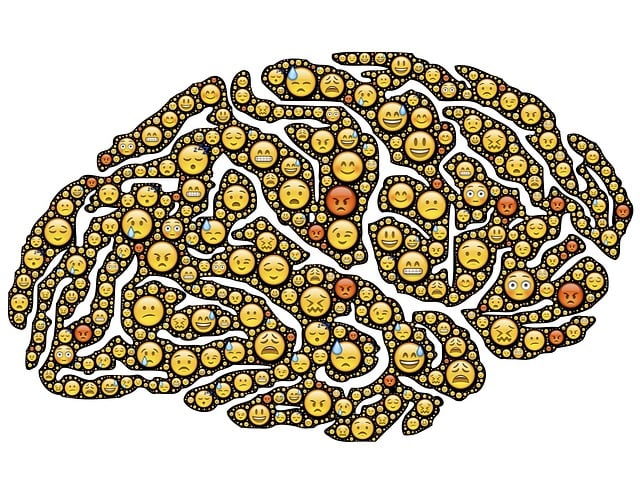Mental health advocacy is a powerful driver for community well-being, focusing on raising awareness, challenging stigma, and promoting understanding of mental health conditions, including Longmont Interpersonal Issues Therapy (LIIT). LIIT in Longmont, Colorado, offers culturally sensitive therapy addressing interpersonal dynamics, personalizing care for diverse needs. Advocacy initiatives should combine public campaigns, conflict resolution, open dialogue, and education to recognize distress signs and encourage early intervention. A collaborative network involving therapists, community groups, healthcare providers, and policymakers is crucial for improving mental health care, breaking down barriers, and revolutionizing outcomes for those facing interpersonal challenges.
Mental health advocacy initiatives are pivotal in fostering community well-being. In this article, we explore essential aspects of mental health support, spotlightting Longmont Interpersonal Issues Therapy as a leading example of effective healing and empowerment strategies. From understanding the cornerstone role of advocacy to implementing strategies for lasting change, we delve into actionable steps for building supportive networks. Discover how collaborative efforts can revolutionize mental health care, offering hope and resilience to those in need.
- Understanding Mental Health Advocacy: A Cornerstone for Community Well-being
- Longmont Interpersonal Issues Therapy: Unlocking Paths to Healing and Empowerment
- Strategies for Effective Mental Health Advocacy Initiatives
- Building a Supportive Network: Collaborating for Lasting Change in Mental Health Care
Understanding Mental Health Advocacy: A Cornerstone for Community Well-being

Mental health advocacy is a powerful tool for fostering community well-being. It involves raising awareness, challenging stigma, and promoting understanding about various mental health conditions. At its core, advocacy aims to ensure that individuals facing interpersonal issues, such as those seeking Longmont Interpersonal Issues Therapy, have access to the support and resources they need. By advocating for improved mental healthcare, we can create a more inclusive and supportive environment.
Through public awareness campaigns development, conflict resolution techniques promotion, and open dialogue, communities can better address issues like depression prevention. Mental health advocacy is not just about providing therapy; it’s about creating systemic changes that prioritize mental wellness. This includes educating the public on recognizing signs of distress, encouraging early intervention, and ensuring equitable access to quality care.
Longmont Interpersonal Issues Therapy: Unlocking Paths to Healing and Empowerment

In the heart of Longmont, Colorado, lies a beacon of hope and healing—Longmont Interpersonal Issues Therapy (LIIT). This therapeutic approach is transforming lives by addressing the complex interpersonal dynamics that often underlie mental health struggles. LIIT provides a safe space for individuals to explore their emotions, understand their relationships, and gain valuable coping skills, ultimately empowering them to lead more fulfilling lives.
The therapy model emphasizes cultural sensitivity in mental healthcare practice, recognizing that everyone’s experiences are shaped by their unique backgrounds and identities. By integrating this perspective, LIIT ensures that each client receives personalized care tailored to their specific needs. Through a series of structured yet flexible sessions, clients work closely with trained therapists to develop effective strategies for managing anxiety relief and navigating life’s challenges with resilience and self-compassion.
Strategies for Effective Mental Health Advocacy Initiatives

Mental health advocacy initiatives are instrumental in fostering understanding and support for individuals facing various challenges. To be effective, these initiatives should incorporate a multi-faceted approach that addresses interpersonal issues, promotes positive thinking, and cultivates empathy within communities. One key strategy is to leverage therapeutic techniques such as Longmont Interpersonal Issues Therapy, which focuses on improving communication skills and resolving conflicts, thereby enhancing mental well-being.
Additionally, incorporating practices like Mindfulness Meditation can help individuals develop emotional resilience and reduce stress levels. Empathy Building Strategies are also vital, encouraging active listening, compassionate communication, and understanding to create supportive environments. These strategies not only empower individuals but also foster a collective sense of responsibility towards mental health advocacy, ensuring that everyone feels supported and valued.
Building a Supportive Network: Collaborating for Lasting Change in Mental Health Care

Building a supportive network is paramount in the fight for better mental health care and advocacy. Collaboration between various stakeholders, including therapists like those at Longmont Interpersonal Issues Therapy, community organizations, healthcare providers, and policymakers, is essential to drive lasting change. By joining forces, these entities can break down barriers and create holistic support systems tailored to diverse needs. This collaborative approach ensures that mental wellness coaching programs development becomes a reality, fostering initiatives aimed at self-care routine development for better mental health and boosting confidence among individuals struggling with interpersonal issues.
Through collective efforts, a robust network can raise awareness, dispel stigma, and provide accessible resources for those in need. It empowers communities to take charge of their mental health by offering guidance and support at every step. This collaborative framework not only enhances existing services but also paves the way for innovative solutions, ultimately revolutionizing care delivery and improving outcomes for individuals navigating interpersonal challenges and seeking therapy.
Mental health advocacy initiatives, such as those exemplified by Longmont Interpersonal Issues Therapy, play a pivotal role in fostering community well-being. By unlocking paths to healing and empowerment, these programs not only improve individual lives but also create a more supportive network overall. Implementing effective strategies and collaborating across sectors can lead to lasting changes in mental health care, ensuring that everyone has access to the resources they need to thrive.














